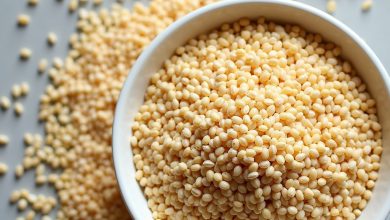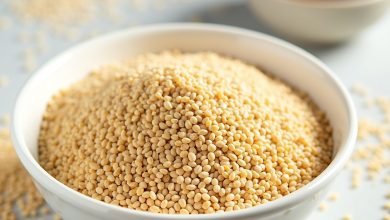Amazing Facts About Fruits and Vegetables

Introduction
Fruits and vegetables are not only essential for a balanced diet but also fascinating in their diversity and benefits. From their historical significance to their nutritional value, there’s much to learn about these natural wonders. In this article, we will explore some amazing facts about fruits and vegetables that will deepen your appreciation for these foods.
Nutritional Powerhouses
One of the most remarkable aspects of fruits and vegetables is their nutritional content. They are packed with vitamins, minerals, and antioxidants that are crucial for maintaining good health. Here are some interesting facts:
- Vitamins and Minerals: Most fruits and vegetables are rich in vitamins A, C, K, and several B vitamins, as well as essential minerals like potassium and magnesium.
- Low in Calories: Fruits and vegetables are generally low in calories, making them an ideal choice for those looking to maintain or lose weight.
- High in Fiber: Both fruits and vegetables are excellent sources of dietary fiber, which aids in digestion and helps prevent constipation.
Diversity and Varieties
The diversity among fruits and vegetables is astounding. There are thousands of different varieties, each with unique flavors, textures, and colors. Here are a few intriguing points:
- Colorful Choices: The color of fruits and vegetables often indicates their nutrient profile. For example, orange fruits and vegetables like carrots and sweet potatoes are high in beta-carotene, while dark leafy greens like spinach are rich in iron.
- Exotic Varieties: Some fruits and vegetables are not commonly found in grocery stores, such as rambutan, dragon fruit, and purple carrots, yet they offer unique tastes and health benefits.
- Genetic Diversity: The genetic diversity in fruits and vegetables is vital for food security. Heirloom varieties of crops have been preserved for generations and often have better resistance to pests and diseases.
Historical Significance
Fruits and vegetables have played a crucial role in human history, influencing cultures and economies around the world. Here are some historical facts:
- Domestication: Many fruits and vegetables, such as corn, wheat, and rice, were among the first plants to be domesticated by humans, marking the beginning of agriculture over 10,000 years ago.
- Cultural Importance: In various cultures, fruits and vegetables have symbolic meanings. For instance, the pomegranate symbolizes fertility and abundance in many cultures, while the tomato is a staple in Italian cuisine.
- Trade and Exploration: The exploration of new lands led to the exchange of fruits and vegetables between continents, forever changing diets—think of how the potato was introduced to Europe from the Americas!
Environmental Impact
Fruits and vegetables also have a significant impact on the environment. Understanding their role can help promote sustainable practices:
- Carbon Footprint: Fruits and vegetables, especially those sourced locally, generally have a lower carbon footprint compared to animal products.
- Biodiversity: Diversifying crops contributes to soil health and reduces the need for chemical fertilizers and pesticides.
- Organic Farming: Organic fruits and vegetables are grown without synthetic chemicals, promoting healthier ecosystems and reducing pollution.
Conclusion
Fruits and vegetables are more than just food; they are vital components of our health, history, and environment. With their incredible nutritional benefits, diverse varieties, and significant cultural roles, they deserve a prominent place on our plates. By educating ourselves about these amazing foods, we can make better choices for our health and the planet. So next time you enjoy a piece of fruit or a serving of vegetables, remember the remarkable journey they have made to reach you!




